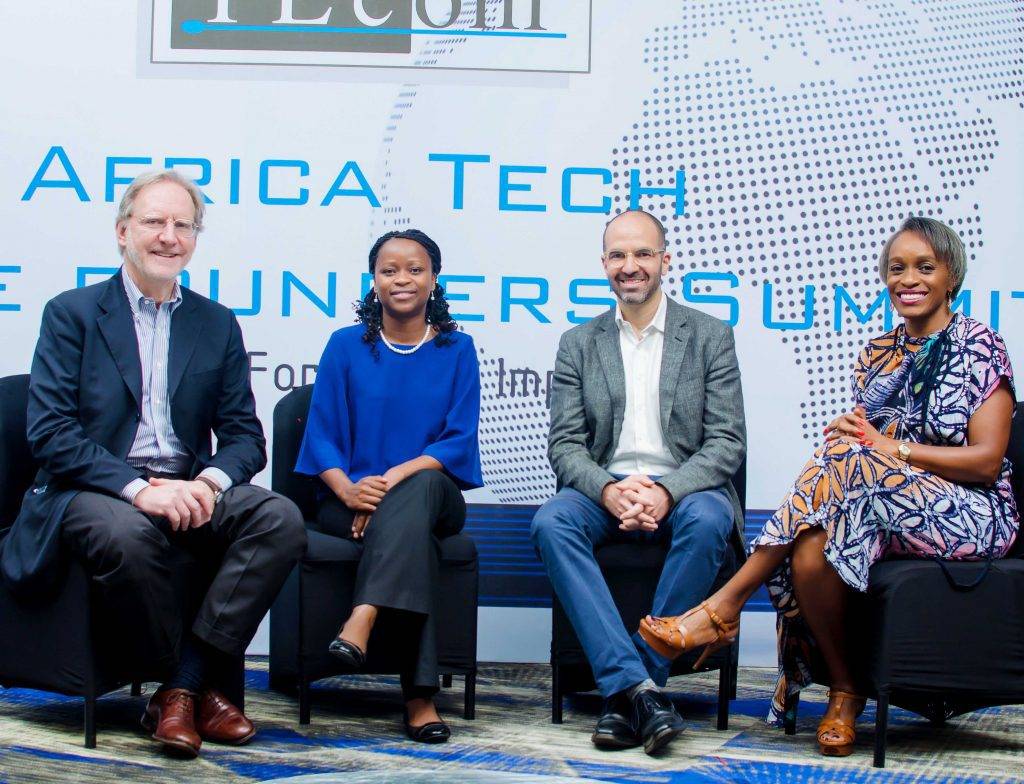TLcom’s Maurizio Caio On Which African Startups Will Be Next To Hit Billion-Dollar Valuations & Why

It’s been over a decade since TLcom Capital made its first venture capital (VC) investment in Africa. At the time, the VC firm didn’t even have a fund dedicated to African startups.
As the years rolled by, the need to raise a dedicated African VC fund became increasingly evident, and this may not be unconnected to the successful exits recorded by TLcom during those early days and the huge opportunities that soon popped up.
And it is with a view to creating value out of some of those “huge opportunities” that TLcom has, over the years, backed some of the most promising tech startups in Africa including Terragon, Ajua, Andela, Kobo360, Twiga Foods, and most recently, uLesson.
Barely two weeks ago, TLcom Capital announced the final close of its Africa-focused VC fund known as TIDE Africa Fund. The fund achieved a final close of USD 71 Mn and according to Maurizio Caio, Founder and Managing Partner at TLcom, it is dedicated to bringing global standards of commercial venture capital to African entrepreneurs.

Caio also reiterated that the TIDE Africa Fund — which will see TLcom make an additional five to six investments in seed/later-stage African startups over the coming 12 to 18 months — is a means “to support them in their value generation journey, as they leverage technology to deliver innovative business models to a largely underserved market.”
But by looking at TLcom’s current Africa portfolio which features six startups in both Nigeria and Kenya, one can, at least, deduce the nature of the companies that are more likely than others to get backing from TLcom at this time.
Why TLcom Believes In “Infrastructure-Type” Tech Startups
While TLcom prefers to identify as sector-agnostic, it is quite obvious that the VC firm currently has something of a soft spot for companies that are more of “infrastructure-type” tech, rather than super commoditised products or services like digital lending.
Still in doubt? Look through TLcom’s portfolio. There is Kenya’s Twiga; a B2B mobile-based food supply platform for retail outlets, kiosks, and market stalls.
There is also Nigeria’s Kobo360; a tech-enabled digital logistics platform that aggregates end-to-end haulage operations to help cargo owners, truck owners, and drivers, and cargo recipients to achieve an efficient supply chain framework.
Plus, there’s Andela, the engineering-as-service platform which needs no introduction. And most recently, uLesson, the exciting edtech solution that is being developed by one of Africa’s brightest tech entrepreneurs, Sim Shagaya.
What do all the companies mentioned above have in common besides having the backing of TLcom? Simple. They all have business models that are generally immune to price competition. And according to Caio, TLcom likes that in a startup.
“When we say infrastructure, we do not mean capital intensive investments but rather technologies and business models that can serve several market segments and are therefore less vulnerable to price competition into any particular consumer-facing vertical,” the TLcom Founder tells WeeTracker.
“For example, Twiga enables more efficiency in the food and FMCG supply chain across thousands of vendors and multiple product categories. In fintech, this approach allows them to support the growing volume of consumer and B2B services (payments, wallets, lending) without entering the highly competitive pressure that is mounting in each of such services.”
Why TLcom Believes The Next African Billion-Dollar Startups Will Be B2B Firms
TLcom also appears to be keeping its hands off highly commoditised businesses despite its “high promise” in Africa for reasons bordering on the higher risks associated with such models at this time.
“Commodity is always a high risk in venture capital, which looks for high margins and fast growth, “ says Caio.
“In a commoditized space, high growth is only achievable via volume and price competition. So commodity products hold a high promise in Africa in terms of the size of the underserved markets in many areas (food, energy, health and many others), but it means that a pure-play commodity business model is not necessarily attractive to venture capital.”
It’s this same conviction that guides the reckoning of Caio, and indeed, the rest of the team at TLcom, that the next startups in Africa that could reach billion-dollar valuations are those ones whose products or services are tailored to meet the needs of other businesses, including very small businesses.
TLcom’s team includes Caio (who is an Italian national), partners Ido Sum (from Israel), Andreata Muforo (from Zimbabwe), as well as senior partner Omobola Johnson, Nigeria’s former Minister of Communication Technology.

L-R: Maurizio Caio, Andreata Muforo, Ido Sum, and Omobola Johnson
At the 2018 TechCrunch Disrupt Berlin event, Johnson revealed her thoughts on the next billion-dollar startups in Africa.
“When I look at the African market, I suspect it’s going to be a company that’s very much focused on business to business and business to very small business — a company that can that can solve their challenges,” she said.
Caio appears to share a similar sentiment as he tells WeeTracker that “infrastructure-like” tech has the edge over consumer-focused businesses and is more likely to hit paydirt at this time.
”Consumer-facing startups are more exposed to capital intensive business models which are not necessarily the best fit with venture capital return expectations,” says Caio.
He adds, “Examples of high capital requirements in such business models are the significant amount of marketing money required to create a new consumer brand, the high level of cash burn to play in a price-competitive environment to achieve volume and critical mass, and the amount of cash locked in working capital necessary to supply consumer-facing distribution channels in order to win and defend market share.”
What Makes TLcom Think Of An Investment As a No-Brainer Or A Non-Starter
TLcom, which has offices in London, Lagos, and Nairobi, is currently looking to add to an already attractive roster that comprises some of Africa’s brightest prospects. Through the recently-closed TIDE Africa Fund, the group will back startups in Africa’s big-three tech hubs — Nigeria, Kenya, South Africa — while keeping an eye out for the emerging gem in Ethiopia.
Previously, TLcom has scored exits in the nascent African VC space with Upstream which was acquired by Actis and Movirtu by Blackberry.
On what makes investing in a startup a no-brainer or a non-starter for TLcom at this time, Caio has this to say:
“We always look at three things. The first is the attractiveness of the market, not just its size and growth, but its margin structure, the role that technology can play, the evidence of high multiple exits in other relevant geographies.
“If the market is attractive then we ask ourselves if the company can capture this upside, not just the quality of the team, but whether or not the entrepreneur can articulate and execute a business model associated with a competitive advantage that is defendable over time.”
He adds, “If both market and company are promising, then we look at the investment structure: valuation, governance, the genuine desire of the entrepreneur to align with investors to pursue massive value generation. Sometimes a great company in a great market can still be a bad investment.”